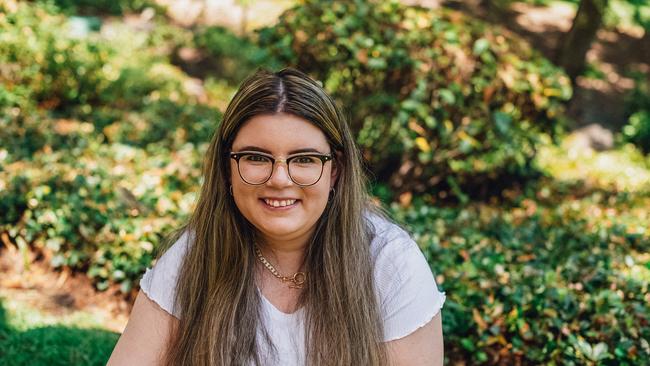‘I had to call the police because I’m a danger to myself or others’: mental health patient’s plea
Aussies with complex mental health problems are being turned away from overwhelmed support services leaving them with no option but to call police for help.
National
Don't miss out on the headlines from National. Followed categories will be added to My News.
Desperate Australians with severe mental illness have resorted to calling the police for help so they don’t endanger themselves or others.
The damning finding headlines a new report showing one million Australians with mental problems can’t afford care and are being turned away from services because their problems are too complex.
The survey of 1000 people — by SANE Australia, the national organisation representing Australians affected by complex mental health which has 40,000 members — delivers a shameful snapshot of the growing mental health crisis.
It found one in three psychologists had closed their books to new patients and the median gap payment for psychological care had increased to $90 per session.
Waiting lists for access to public care are more than a year long and those who do get into a hospital complain they are turfed out before they are ready to go.
“The minute I show some improvement … I am ejected out the door and back into the same context that led me there in the first place,” one respondent to the survey, which will be shared at a forum on mental health access and equity on Monday, said.

Three in four people said affordability was the main limitation to accessing mental health care.
A first appointment with a psychologist or psychiatrist can cost between $500-$600 with subsequent appointments priced at $300-$400.
Medicare rebates, set at $89.65 per session with a general psychologist and $131.65 per session with a clinical psychologist, only cover a fraction of the cost.
Of major concern was the finding that 28 per cent of those surveyed said their existing providers were not able to adequately care for them.
One patient with psychosis said their inability to access care when needed meant police had to be called.
“Please enable direct access to psychiatrist when needed to enable early intervention before full blown episode of psychosis. Shouldn’t have to go to emergency and wait many hours to be turned away. Shouldn’t have to not be able to get treatment until have to get police because I’m a danger to self or others,” the respondent said.

SANE chief executive Rachel Green said those affected had been forgotten as the government instead focused spending on the Better Access plan, which provides 10 subsidised mental health support sessions per year.
She said that plan was “skewed towards those who are able to pay”.
“It’s not just about offering more sessions, we need to disrupt the current system to ensure those needing acute care are not standing in the same long queue as those with less urgent needs,” she said.
“In this country where you live and how much money you have still determines whether you’ll get any help at all.”
SANE has piloted a unique online support-based service that works with vulnerable individuals as part of their team with extremely promising results, but funding expires in June and $7 million a year is required to keep it going.
Complex mental health problems include major depression, bipolar disorder, anxiety disorders, schizophrenia, borderline personality disorder, obsessive-compulsive disorder, post-traumatic stress disorder and eating disorders.
Four in 10 respondents are not accessing any psychological care.
One respondent highlighted the rapid turnover of psychologists and psychiatrists “means I just share my stories over and over again and before therapy can start, they move on. There’s no continuity of care and I’m so sick of reliving my trauma over and over again”.
Those living with complex mental health needs are significantly more likely to die by suicide and experience poverty, discrimination and abuse.

Hannah Hyatt was diagnosed with schizophrenia when she was 18 and suffers from a range of other mental illnesses.
‘My parents paid for out of pockets when I was younger, but that was difficult because they’re not super well off,’ she said.
As an adult there have been times when she has not been able to get help because she couldn’t afford it.
Although she can now access a psychologist under the NDIS it does not pay for her psychiatrist.
She is studying and working as mental health peer worker in a hospital and said it was difficult to find a psychiatrist in the public system and most people had to go private.
More Coverage
Originally published as ‘I had to call the police because I’m a danger to myself or others’: mental health patient’s plea





